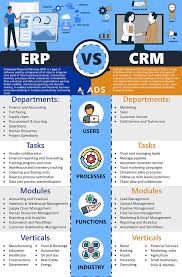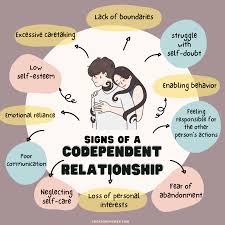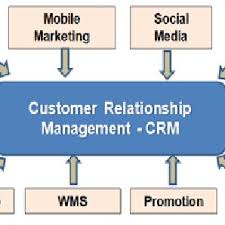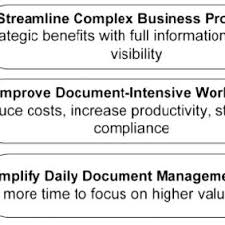We analyze the work of CRM systems using simple examples. We explain why customer relationship management systems are needed and advise what to pay attention to when choosing the right CRM for your business.
CRM systems: what are they and what types are there
Main characteristics of CRM systems
What tasks do CRM systems solve?
How to choose a CRM system
Tips for choosing and implementing CRM systems
CRM systems: what are they and what types are there
Table of Contents
Customer Relationship Management (CRM) is a system for managing customer relationships.
In simple terms, this is a service that collects data about a company’s clients and creates profiles from them for further work.
Imagine your social network page: it contains your name, possibly your place of work and position, education, interests, reposts from groups and a lot of other information. All this forms your profile. You can understand who you are, what you are interested in and what you can talk about.
The same profile is formed in the CRM system, only it tells about the relationship of a person with a specific company. When and how he contacted it, what he wanted to buy, which managers worked with him.
Read Also:Google My Business: Essential Tips
Operating
Useful for sales departments: they store a retrospective of the client’s actions and visualize their movement through the sales funnel : from the first call to payment.
Such CRMs can remind managers to contact a client and allow them to keep all information about them in one place.
Marketing
They record everything that operational ones do, as well as the fact of sending marketing communications and the response to them, the accrual and write-off of loyalty points, the client’s interaction with the site or application: which pages they visited, how long they studied them, what place they reached.
This allows marketers to study what exactly attracts or repels customers.
We will talk about the work of specific services and their selection in more detail below. But for now, let’s figure out why CRM systems are needed at all.
Main characteristics of CRM systems
Store customer data
They allow you to collect all the information in one card, structure it and give it out in a clear form. So when a customer contacts you again, you don’t need to look for their manager or ask them to wait on the line to find and study previous agreements: all the data about previous communication and purchases will be right in front of you.
Record interactions
A client can communicate with a company in different ways: in a chat on the website, by phone, on social networks, via email. Or today in one way, and tomorrow in another. The job of CRM is to combine client requests into one history so that there are no gaps.
Automate routine
When managers lead clients in Excel, they do a lot of monotonous work: manually fill in data, spend time searching and studying the necessary information in inconvenient tables. CRM allows you to save time on these processes and devote it to communicating with the client.
Read Also:Legal Tech News: Latest Updates
Allows you to control everything
Often, CRM is needed to analyze the actions of not only clients, but also employees. How long they worked, how many people they communicated with, whether they met the deadlines for tasks.
A good CRM system should be clear and easy to use – this can be assessed using demo access or a demonstration of the service when purchasing it. Usually, CRM developers provide such an opportunity.
The customer relationship management service should also be flexible, i.e. adapt to the number and type of tasks that will appear in the company. Here are the service settings that are important to pay attention to:
the service should be easily integrated with external services for marketing and communication with clients;
If the service has tariff plans, they must be adequate and affordable for the company;
The CRM system should have a function for managing access for employees and the ability to view their actions in the system – independently or through developers.
What tasks do CRM systems solve?
We’ve sorted out the CRM functions. But how do you know if the service will help solve a specific problem? Let’s look at three popular queries.
Need to increase conversion at different stages of the sales funnel
Let’s imagine that your company is engaged in the installation of interior doors. The client goes through five stages:
This means that there are four points where you can lose a client:
How can CRM help in this case?
An operating CRM system is suitable here: it will digitize all stages of the transaction and will assign a deadline for their completion together with those responsible – this way you can easily find weak points, optimize and debug them.
Managers will be able to instantly see the current calendar of surveyors and installers, which means they will be able to choose a convenient time for the client here and now, without waiting or repeat calls.
The CRM system will collect customer requests from everywhere into one window, and will even be able to store call records – this is an invaluable information base for a marketer.
Result: The conversion of each stage will increase when you find and then eliminate or optimize weak points in working with the client. Without a CRM system, you simply won’t see them.
We need to reduce customer churn and increase repeat purchases
Let’s take another example: an online store of clothes and shoes for children from 0 to 14 years old.
There are orders, but you see that people almost never come back to buy again. Although they can buy from you for 14 years.
How can CRM help in this case?
This is where a marketing CRM comes in handy: with its help, you can process and segment your customer base, and then build reactivating communications with them.
Reactivation communication is communication with customers who have not bought anything for a long time. But messages like: “Hi! You haven’t bought anything for a long time — maybe now?” are often not enough. Therefore, a whole chain of communications is needed. In our example, it could be like this:
It is important not to forget to transfer the client from one category to another: if today a mother bought a jumpsuit for an age of up to six months, then in a few months it is worth raising the bar and offering more adult clothes – for a year.
Result: If you anticipate customer needs and stay visible, you will not only turn one-time purchases into regular ones, but you will also be able to predict how much money the customer will bring you in the future. The costs of running a CRM system for business will quickly pay off.
By the way, the same can be done in an offline store if you implement a loyalty program – this will allow you to collect customer contacts. And it is not necessary for clothing stores – you can use the same scheme to remind about car parts or art supplies.
I want to conduct sales and marketing consciously
CRM allows you to do a lot, we have only covered the basic business tasks. To do more complex things, a company needs two specialists: a sales manager or team leader and a CRM marketer .
The task of the head of the sales department is to study clients and current communication with them using data from the CRM, think through and test new hypotheses, and implement successful ones.
Who is a CRM marketer?
CRM marketer is a young profession, and it is difficult to find a person on the market who really understands it well. Another way to get a CRM marketer on your team is to send current employees, such as internet marketers or email marketers, for training.
How to choose a CRM system
There are several dozen different CRM systems for business on the market. Therefore, it is impossible to say exactly which one you should choose.
When choosing, focus on:
CRM type – can it solve your problem and is it suitable for your business;
simplicity and ease of use. Ask for a trial period, demo access or a demonstration of the CRM system’s capabilities, and be sure to offer the service to the employees who will use it;
the ability to set up integration with social networks, online consultants for the site, call tracking, email and push mailing services;
flexibility of the system and the cost of its maintenance. There are services that develop themselves – you only pay for a monthly subscription. And somewhere you will have to pay extra for improvements to special people – for example, this often happens with 1C.

Here’s a quick reminder of what you need to do:
We have selected several popular CRM systems to make it easier for you to start searching, selecting and implementing the service into your company’s work. These systems have been on the market for a long time, they are constantly being improved, and thousands of companies have already tested them.
Operating
Bitrix 24, amoCRM, 1C in various configurations, Kontur.CRM, Freshoffice, Mango Office Deals, SBER CRM, Brizo
Marketing
Carrot Quest, Mindbox, Megaplan, Microsoft Dynamics 365
Industry
for beauty services: YClients;
for medical centers: Medesk;
for fitness clubs: 1C:Fitness club and Fitbase;
for online stores: Retailcrm;
for children’s schools: Paraglider;
for online courses: GetCourse;
for developers: Layout.
Read Also:Val Kilmer’s Health: Latest Updates
Tips for choosing and implementing CRM systems
If you have a small company and are just trying to automate sales and marketing, you don’t need to buy a spaceship from the world of CRM systems. Start with something simple and understandable.
Don’t compare systems based on the availability of certain functions. Look at the functions you actually need and how easy they are to use. Even the most feature-rich service won’t pay for itself if it increases your operating time several times over with its inconvenience.
The goal of a CRM system is to simplify your company’s work and improve business efficiency. Don’t forget to check if it worked.











